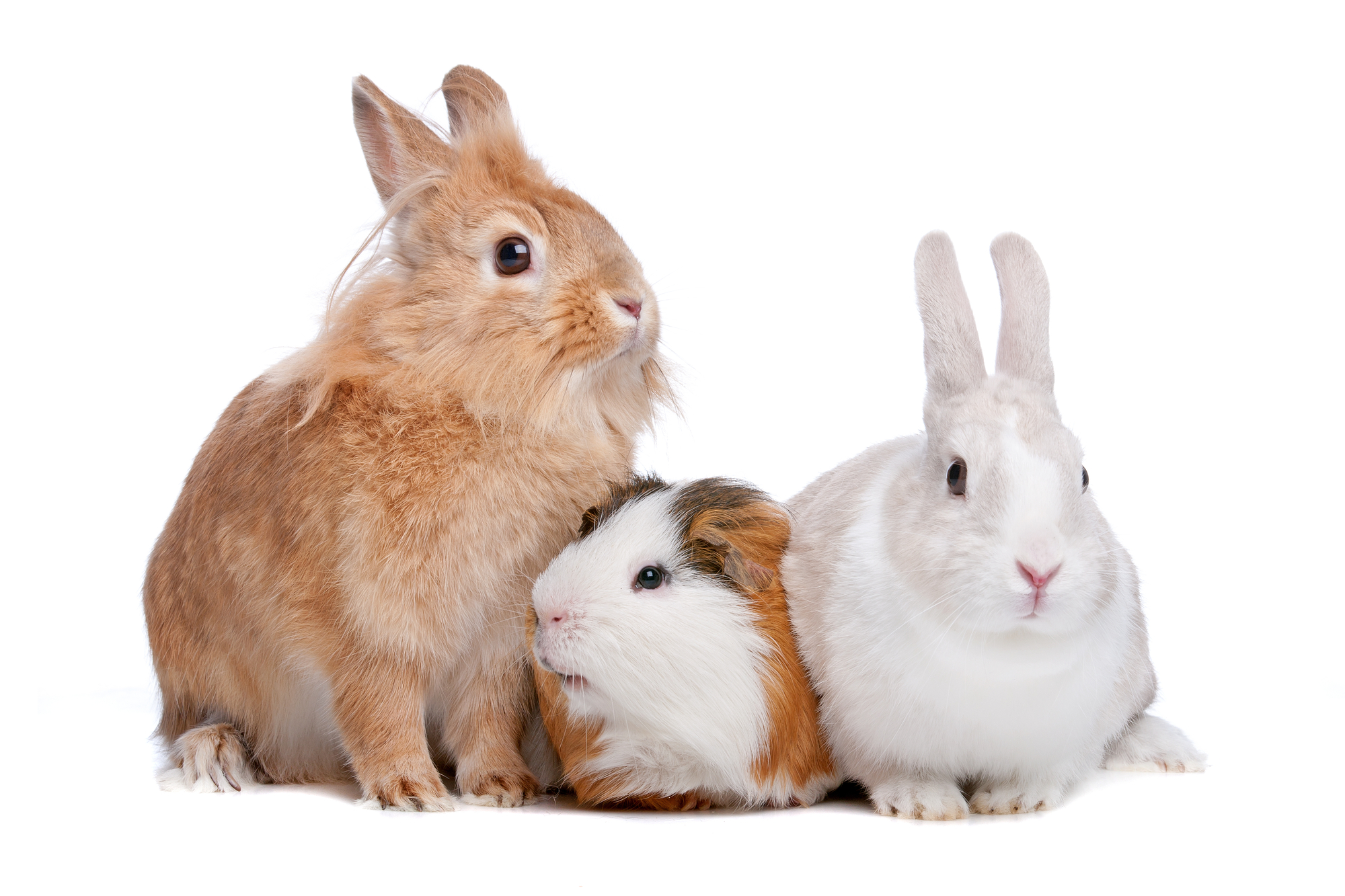
Caring for Small Animals
Not ready to commit to a dog or cat? That’s okay. There are plenty of small pets that can give you just as much joy. This article is going to talk about how to care for three popular small pets. If you are interested in getting a rabbit, hamster, or guinea pig, keep reading.
Get a Cage
Your small pet is going to need a cage. But don’t cramp your furry friend. Instead, choose a cage that’s large enough. How big should a cage be for a rabbit, guinea pig, or hamster? Good question. The right size depends on the type of pet you have. Here are the minimum recommended sizes for each pet:
- Rabbits: 12 square feet.
- Guinea Pigs: 7.5 square feet.
- Hamsters: 2 square feet, although some hamster websites recommend more space than this.
Remember, the more room your pet has the better. So, don’t hesitate to get a larger cage if you have the budget and space for it.
Choose the Right Bedding
You will need to cover the bottom of the cage with bedding. There are tons of options out there. Do your research to find the best one for your particular pet. If you have Guinea pigs, make sure their bedding is about 4-5 inches deep. This allows them to burrow, which they love doing. Cleaning out the cage regularly is absolutely necessary. This chore involves replacing old bedding with fresh bedding.
Provide Exercise and Stimulation
You would probably go crazy if you never got to leave the house. Your small pet likely feels the same way. So, don’t keep your fur baby locked up 24/7. Instead, allow your pet to play outside the cage. Just be sure to supervise each play session. Here are some fun, cage-free exercise ideas for rabbits, hamsters, and guinea pigs:
- Set up a playpen. This ensures your pet won’t wander off to any danger zones.
- If you don’t have a pen, pet-proof your room and let your furry pal run around.
- Teach your pet how to walk on a harness and leash.
- Get a running ball for your hamster or Guinea pig.
- Train your pet to do tricks. You might be surprised by how smart your little friend is!
Letting your pet play outside the cage is important. But there will be times when your fur ball must stay inside the cage. How can you keep your pet entertained during those times? Here are some ideas:
- Give your pet an exercise wheel.
- Keep pet-safe toys in the cage.
- Give your pet an edible chew home.
Feed the Right Diet
A healthy diet is essential for optimal health. Determining the right diet for your pet will require more in-depth research. But in general, most small pets eat pellets, hay, and fresh produce. Guinea pigs also need a daily vitamin C supplement because they are unable to produce this nutrient on their own.
Learn How to Groom Your Pet
How To Groom a Rabbit
Just like cats, rabbits like to keep clean. But that can become problematic if your bunny licks up too much hair. Since rabbits can’t throw up, all that hair may turn into a dangerous blockage. You can avoid this horrible scenario by brushing your bunny. Short-haired rabbits only need weekly brushings, while long-haired rabbits require more time and effort. Visit the House Rabbit Society website to learn more about grooming your bunny.
How To Groom a Guinea Pig
Guinea pigs don’t need much grooming. Just a weekly brushing and monthly nail trimming should suffice. Of course, long-haired Guinea pigs probably need to be brushed more frequently.
How To Groom a Hamster
Most hamsters don’t require any grooming at all. They usually take care of it on their own. However, some long-haired hamsters may need to be brushed. PetMD also recommends giving your hamster a sand or dust bath. This will help your hamster stay clean while providing some fun.
Small Pet’s Social Needs
Can small pets live with others of its own kind? That depends on the animal. Here are some guidelines:
- Rabbits prefer living in pairs. If they live alone, they are more susceptible to stress, illness, and behavioral problems.
- Guinea pigs do better when living with other Guinea pigs.
- Unlike rabbits and Guinea pigs, hamsters are better off on their own. That’s because they are very territorial. If you keep more than one hamster in the same cage, they may fight to the death.
Keep in mind, you will need a larger cage if you have multiple Guinea pigs or rabbits. The size of the cage depends on how many animals you have.
In Conclusion
Small pets may be easier to care for than cats and dogs. But they still deserve a dedicated owner that is completely committed to providing excellent care. If you are that kind of pet parent, your little friend will thrive!
About the Author:
Savanna Westwood
Savanna Westwood is the Owner and Founder of The Savvy Sitter, Pet Sitting and Dog Walking, LLC. She has grown up with animals all her life and enjoys spending time with them. Savanna has lived in the Winter Garden and Windermere Area for over 30 years. When she is not taking care of Fur Friends, one can find her reading, practicing archery, riding, and devising ways to provide additional and excellent services to clients. Savanna is a Certified Professional Pet Sitter with Pet Sitter International's CPPS certification and also holds certification in Pet First Aid and CPCR for Pet-Care Professionals.

